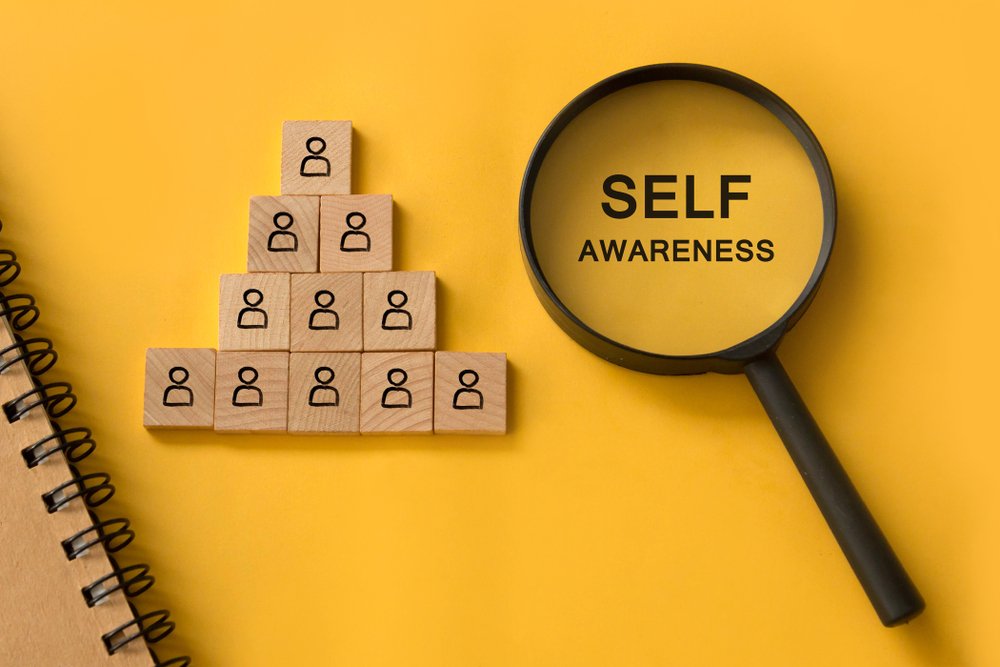As we gathered around the conference table, I had to smile at the level of expertise in the room. My boss had brought together some real experts on the topic we were there to discuss. The puzzling thing is that when his boss began to ask questions, my boss did all the talking. He had very little understanding of the topic’s details, but there he was, explaining away while his assembled team of experts sat quietly astonished at what they were seeing.
As my boss’s boss looked on, you could see the concern on her face. Her body language and facial expressions told a story that my boss was completely oblivious to. Sadly, the meeting ended with two disappointing outcomes: one, the experts felt devalued; and two, my boss had lost all credibility with his boss.
Self-aware of What?
When someone has a high degree of self-awareness, they are aware of their strengths and weaknesses. They are aware of their effect on others, and they are aware of others’ presence and contributions. Self-aware people generally have a growth-mindset and exhibit some degree of humility. They may also use vulnerability to invite others into the conversation, and the emotions of others do not threaten them. It’s no wonder that being self-aware is such an essential factor in your leadership effectiveness.
Know Thyself
The first step in developing a strong self-awareness is to know as much about yourself as possible, and this includes any blind spots that can often derail our best efforts. Some suggested ways of doing this are to read the book Strengths Finder and take the assessment that comes with it. Learn your Myers-Briggs profile. Take other professional assessments. At the John Maxwell Company, we use the RightPath Resources personality and temperament assessment and a 360-Degree Leadership Assessment.
Next, compare what you learn about yourself to the image you have of yourself. Do you recognize the strength and struggles that the assessments revealed? It can be easy to see ourselves as better than we are. This is not to say you shouldn’t have a positive self-image; you should, but don’t kid yourself into thinking you don’t have blind spots.
Identify Your Values
Another exercise that can increase your self-awareness is to perform a values exercise. To do this, reflect on the top 3-5 values that govern your life right now. Next, assess how you are living out those values. It says I value teamwork, commitment, and accountability, but the proof lies in your behavior. Values always drive behavior. The more in alignment you are with your values, the more self-aware you will become.
Self-Awareness Quick Check
Author Ryan Holiday, in his excellent book, “Ego is the Enemy,” reminds us, “The ability to evaluate one’s own ability is the most important skill of all. Without it, improvement is impossible. And certainly, ego makes it difficult every step of the way. It is certainly more pleasurable to focus on our talents and strengths, but where does that get us? Arrogance and self-absorption inhibit growth. So does fantasy and “vision.”[1]
Our pride can often act as a translator, and as Ryan Holiday puts it, “that warps perspective, reality, truth, and the world around us.”
To develop your self-awareness, honestly answer these questions:
- Are you trying to be someone other than who you really are?
- Are you trying to portray a leadership persona that doesn’t match who you are?
- Do the values you espouse and the actions you take everyday line up?
- Do you embrace authenticity, vulnerability, and a growth mindset?
Self-awareness doesn’t come by accident. It requires time for reflection and self-evaluation. It requires honest conversations with others. It involves observation—of yourself and of how others react to you.
[1] Ryan Holiday, Ego Is The Enemy
Perry Holley is a coach and facilitator with the John Maxwell Company’s Corporate Solutions Group as well as a published author. He has a passion for developing others and seeing people grow into the leaders they were intended to become.

